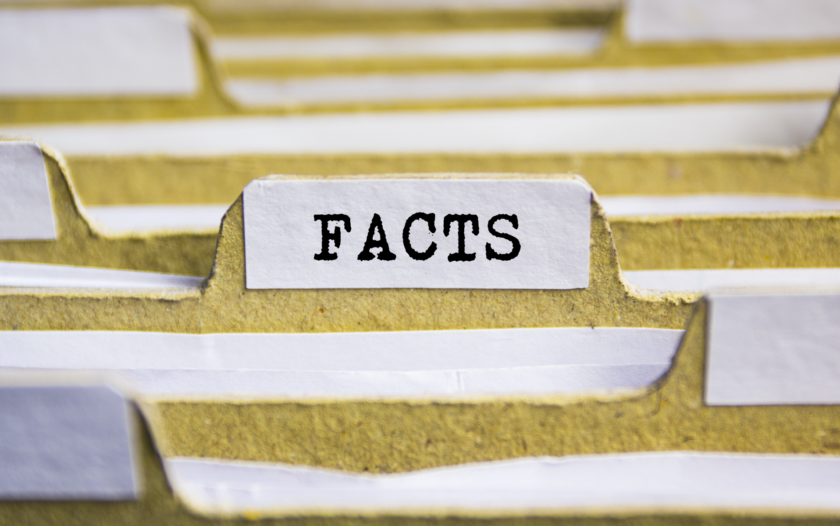7 Must-Know Debt Consolidation Facts
About Kevin
Kevin is a former fintech coach and financial services professional. When not on the golf course, he can be found traveling with his wife or spending time with their eight wonderful grandchildren and two cats.
Read full bio
At a Glance
Debt consolidation is a popular strategy for consumers who are buried in high-interest credit card debt, but that’s not the only application for it. In today’s article, we’ve made a list of seven facts about debt consolidation that you may not be aware of, but you should be. Read this list carefully before applying for a debt consolidation loan.
- Debt consolidation does not eliminate debt
- Repayment terms can be modified
- Personal loans are not the only debt consolidation option
- Debt consolidation options come with fees
- Eligibility and interest ates are dependent on your credit score
- Debt consolidation could affect home ownership
- You can consolidate student loans, medical debts, and taxes
- Bottom line: Study the facts before acting
1. Debt consolidation does not eliminate debt
One of the key requirements for debt consolidation success is that you use your debt consolidation loan to pay off other debts. That doesn’t mean you have no further liability. You still must repay the loan before you can become debt-free. The best way to do that is to make your monthly payments on time and not use your credit cards for purchases.
2. Repayment terms can be modified
One of the important things to know about debt consolidation is that you may be able to modify your repayment terms if you took out a personal loan. This is also known as refinancing. Once you’ve paid a portion of the balance, ask your lender if there’s a lower interest rate available or a longer term to lower your monthly payments. One or both may be possible.
3. Personal loans are not the only debt consolidation option
The truth about debt consolidation is that taking out a personal loan may not be a good idea for you. Other debt consolidation options include balance transfer cards for credit card debt, debt management programs, and home equity loans or lines of credit (HELOCs). There are pros and cons to each of these, so research them all thoroughly before making your final decision.
Related: Pros and Cons of Debt Consolidation
4. Debt consolidation options come with fees
Unlike debt payoff programs such as the debt snowball and debt avalanche, debt consolidation programs come with fees. For example, lenders charge origination and annual fees for personal loans, and debt management programs charge monthly membership fees. Balance transfer cards also sometimes have annual fees, and that low introductory interest rate will expire at some point.
5. Eligibility and interest rates are dependent on your credit score
If your FICO credit score is under 500, you may want to consider bankruptcy instead of consolidation, because it’s unlikely you’ll get approved for a debt consolidation loan. If you’re between 500 and 600, you might get approved, but can expect to pay a higher interest rate. This should be near the top of the list of things to know about debt consolidation.
Related: Bankruptcy or Debt Consolidation
6. Debt consolidation could affect home ownership
Debt consolidation can affect buying a home because it could lower your credit score. When you first take out the loan, your credit utilization goes up and your score goes down a bit. If you already own a home and take out a home equity loan or HELOC to consolidate debt, you’re putting your home up as collateral, which is not generally a good idea.
Learn more: Does Debt Consolidation Affect Buying a Home
7. You can consolidate student loans, medical debts, and taxes
Credit cards aren’t the only debts that you can consolidate. You can take out a personal loan to pay off student loans, medical debts, or outstanding tax bills. This is one of the less commonly known facts about debt consolidation and is generally done to protect personal assets. Defaulted unsecured personal loans go into collections and result in judgements that hurt your credit. Federal student loan lenders, medical institutions, and the IRS, however, can go after property, seize assets, and garnish wages. So switching to a personal loan lowers the risk of that.
Bottom line: Study the facts before acting
These are good words of advice for virtually everything in life: study the facts before acting. Consolidating your debt with a personal loan might be the right option for you and it might not be. Don’t just jump into it because someone else told you it was a great idea. Do your research. Start with this list and expand your knowledge from there.
Sources
- https://www.lendingtree.com/debt-consolidation/must-know-debt-consolidation-facts/
- https://www.forbes.com/advisor/personal-loans/pros-and-cons-of-debt-consolidation/
- https://www.thebalance.com/what-you-must-know-about-debt-consolidation-960652
- https://www.ramseysolutions.com/debt/debt-consolidation-truth









